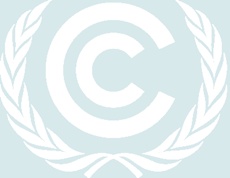COP23: Developed world agrees to act on pre-2020 obligations
16 Nov 2017
Developed countries participating in the UN Climate Change conference in Bonn, Germany, have agreed to revisit the pre-2020 climate action obligations, including reduction of emissions technology transfer and financial commitments.
 As part of the agreement reached at the Conference of parties (COP23) in Bonn, developed countries, except the United States, on Wednesday agreed to discuss the issue at the next two climate conferences in subsequent two years.
As part of the agreement reached at the Conference of parties (COP23) in Bonn, developed countries, except the United States, on Wednesday agreed to discuss the issue at the next two climate conferences in subsequent two years.
Fiji, which is presiding over COP23, has been asked to send letters to all the countries which are yet to ratify the Doha amendments to the Kyoto Protocol of 1997 to do so "as soon as possible".
The developed countries have also been asked to give information by 1 May 2018 on the progress they have made on pre-2020 actions that relates to their obligations under the Kyoto Protocol that includes reduction of emissions and transfer of technology and finance.
The issue, which entails revisiting of greenhouse gas mitigation targets by developed countries and provision of finance, technology and capacity building support to developing countries, has now found a place in the draft decision text of the COP23.
The pre-2020 actions taken by the developed countries will be reviewed in 2018 and 2019 and will finally get reflected as 'decision' of this conference.
It is expected that the 2018 facilitative dialogue, called Talanoa dialogue, will discuss pre-2020 actions of rich nations apart from looking at the climate actions of all nations under the Paris Agreement.
"The lost agenda in climate change negotiations at COP23 on ambitious pre-2020 mitigation action by developed countries was redeemed with efforts by India, China and other developing countries", said India's environment secretary C K Mishra.
"Many of the proposals floated by India as part of the Like Minded Developing Countries (LMDC) group were agreed upon by the COP Presidency and found a place in the draft decision text," he added.
However, this was a compromise reached during joint consultations where all the countries agreed to discuss the critical issue of pre-2020 action as part of "Talanoa Dialogue" next year and not as part of the COP23 agenda which was originally demanded by the developing countries. Developing countries have been demanding forward movement on pre-2020 actions, which they said are part of the Paris Agreement and cannot be divorced from the commitments under the Kyoto Protocol.
The Kyoto Protocol, which refers to obligations of rich nations to take mitigation action, was adopted in 1997 and was since amended in Doha in 2012 where the developed countries had agreed to undertake their aggregate emission cuts by at least 18 per cent by 2020 below the 1990 levels. However, most of them, including the EU, have, so far, not even ratified the decision.
So far, only 84 of the total 191 signatories have ratified it. It'll become operational only after being ratified by minimum 144 countries.
"Strong voices of concern by developing countries prompted the COP presidency to recognise their concerns and call for early ratification of the KP-II and consult United Nations Secretary General to encourage it. The draft text address the key demand from India on a mid-2018 deadline for this process," said Mishra.
Ministers of BASIC countries - Brazil, South Africa, India and China - on Wednesday spoke at length on the importance of pre-2020 actions by rich nations under KP for driving the post-2020 commitments forward under the Paris Agreement.
"While we are doing our bit, our strong commitment must be met by the leadership that the developed countries are supposed to provide in taking actions regarding mitigation and support in terms of finance and technologies," India's environment minister Harsh Vardhan said.
The Talanoa dialogue process is a Fijian concept of negotiations and discussions to arrive at an acceptable solution. Talanoa is a traditional word used in Fiji and the Pacific to reflect a process of inclusive, participatory and transparent dialogue. The purpose of Talanoa is to share stories, build trust and to make wise decisions, which are for the collective good. The process of Talanoa involves the sharing of ideas, skills and experience through storytelling.
The president of the COP23, Fijian Prime Minister Frank Bainimarama, named the 2018 facilitative dialogue (FD) as the 'Talanoa' dialogue. The FD will take stock of the countries' collective efforts in relation to progress towards their long-term climate goal under the Paris Agreement.
(See: Climate action: Study says China, India making amends for Trump's inaction)


















